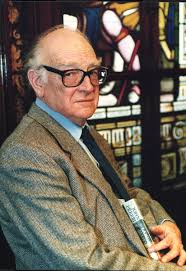One of
the biggest influences on me, writing THE
PEACEMAKER and my other western novels, was THE BUFFALO SOLDIERS by JOHN PREBBLE which I re-read recently.
John Prebble (1915-2001) was (like me) an Englishman
who wrote westerns. His short story ‘My
Great Aunt Appearing Day’ was turned into the 1955 movie ‘White Feather.’
Robert Wagner and Jeffrey Hunter in ‘White Feather’
But he also wrote thrillers, some distinguished
histories of Scotland, one of which was made into the acclaimed 1964
documentary ‘Culloden,’
and co-wrote the screenplay of the epic movie ‘Zulu,’ also 1964.
Michael Caine in ‘Zulu’
His novel ‘The
Buffalo Soldiers’ is the story of Lt. Garrett Byrne, a white officer
commanding a patrol of black troopers of the 10th U.S. Cavalry – the
so-called ‘buffalo soldiers’ - in Oklahoma c. 1869. He is tasked with escorting
a party of Comanches living on the reservation on a buffalo hunt; then, when
they turn renegade and flee into the wilderness of the Texas Staked Plains, of
hunting them down.
This is the most un-western western I’ve ever read –
as well as being one of the best. Although it deals with wildly familiar
subject matter – the U.S. Cavalry versus the Indians, the Texas Rangers,
Comancheros etc. – I’d defy anybody to find a cliché in the entire book.
Prebble, as an outsider, seems to have no pre-conditioning about the Old West.
All aspects are looked at with a fresh eye, particularly his startling
depiction of the Texas Rangers. This is partly through absolutely authenticity,
shown by small, convincing details, (down to using brandy to treat gum sores,)
partly through complex characterisation.
These are flawed, ambiguous individuals. We can see
heroism behind the cavalrymen, rangers and Comanches, but also obstinacy, cruelty
and confusion. Byrne is no lantern-jawed idealist. He’s a middle-aged loner,
unhandsome, socially awkward and makes mistakes – including some very bad ones.
Born in Ireland, he’s struggled to escape the hatred that his father tried to
instil in him – but then he finds himself hating the Comanches, something that
drives and tortures him through the second half of the book.
This is a realistic – and therefore hard-hitting –
novel, with elements of tragedy. There’s one chapter I find particularly tough
to read. But the writing is superb. Prebble has the absolute knack (which he
shares with the likes of A.B. Guthrie Jnr.) of capturing vast cinematic
landscapes concisely and vividly. ‘The set of the sun revealed a long tableland
in the far west, an indigo pencil-stroke between the red of the sky and the
yellow grass.’ ‘The whole plain was miraculous, an ocean of grass moving
against the far escarpments, and a wind rushing ceaselessly.’
‘The Buffalo
Soldiers’ throws up a portrait of tragic racial conflict and issues, asking
questions that the world is still trying to answer. Revisiting it, I realised
the book was a tremendous influence on me. Stimulating, disturbing and powerful,
it never loses its humanity even when showing humanity at its worst.
Prebble's western short stories - including ‘My Great Aunt Appearing Day’ - were gathered together in a collection, 'SPANISH STIRRUP', that I would also highly recommend.
Prebble's western short stories - including ‘My Great Aunt Appearing Day’ - were gathered together in a collection, 'SPANISH STIRRUP', that I would also highly recommend.
Some of the background to THE BUFFALO SOLDIERS:
Formed in 1866 the 9th and 10th Cavalry and the 24th and 25th Infantry
were the U.S. army units comprised of black enlisted men and white officers.
Their nickname may have originated with Plains Indians - buffalo hunting
tribes. ("We called them 'buffalo soldiers' because they had curly, kinky
hair... like bisons.")
Buffalo soldiers, a 10th Cavalry chaplain observed, 'are possessed of
the notion that the coloured people of the whole country are more or less
affected by their performance in the Army.'
These regiments enjoyed high re-enlistment rates and - in contrast to much of the frontier army - low desertion rates.
In 1874 General Sherman said of them: ‘They are good troops, they make
first-rate sentinels, are faithful to their trust, and are as brave as the
occasion calls for.’
Despite this, black regiments were the subject of what Robert M. Utley,
in ‘Frontier Regulars’ calls ‘searing racial prejudice.’ Utley writes: ‘The
black regiments endured discrimination in both the quantity and quality of
supplies, equipment and horses, and for 25 years they remained without relief
in the most disagreeable sectors of the frontier.’
Buffalo
soldiers have featured in film westerns like John Ford’s ‘SERGEANT
RUTLEDGE’ (1960.)
On TV
they were featured in shows like ‘THE HIGH CHAPARRAL’ (‘The Buffalo
Soldiers’, ‘Ride the Savage Land.’)
High Chaparral episode: ‘Ride the Savage
Land.’

































